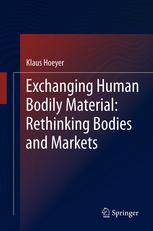

Most ebook files are in PDF format, so you can easily read them using various software such as Foxit Reader or directly on the Google Chrome browser.
Some ebook files are released by publishers in other formats such as .awz, .mobi, .epub, .fb2, etc. You may need to install specific software to read these formats on mobile/PC, such as Calibre.
Please read the tutorial at this link: https://ebookbell.com/faq
We offer FREE conversion to the popular formats you request; however, this may take some time. Therefore, right after payment, please email us, and we will try to provide the service as quickly as possible.
For some exceptional file formats or broken links (if any), please refrain from opening any disputes. Instead, email us first, and we will try to assist within a maximum of 6 hours.
EbookBell Team

0.0
0 reviewsThis book addresses the debate usually tagged as being about ’markets in human body parts’ which is antagonistically divided into pro-market and anti-market positions. The author provides a set of propositions about how to approach this and shows a way out of the concrete impasse of it. Assumptions about markets and bodies that characterize this debate are analyzed and described while the author argues that these assumptions are in fact constitutive for exchanges of human bodily material – but in unacknowledged ways. It is concluded that what we need is a different analytical approach to better understand the mechanisms at play when organizations exchange organs, tissues and cells for use in transplantation and fertility medicine.